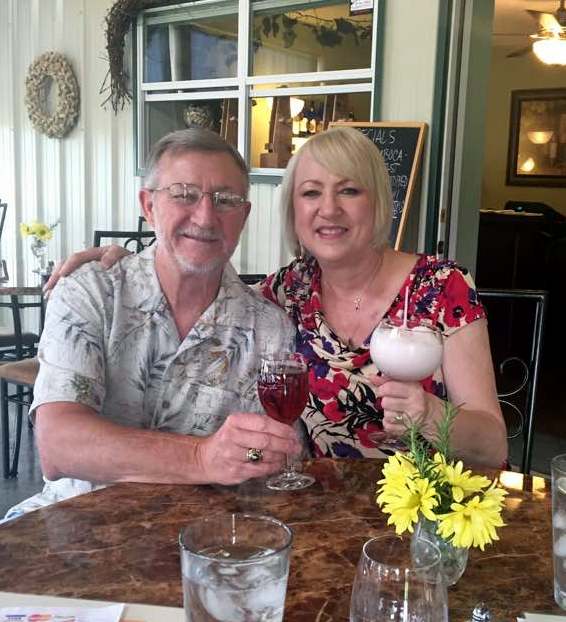My husband, Alan, 63, and I live in East Texas. He has been diagnosed with probable MSA-C. He uses a walker to move around--can't move around on his own. His speech and fine motor skills are affected somewhat, too. His noticeable symptoms began 3-4 years ago. He was on some Parkinsons meds for a while but is gradually going off those because they had no positive effects. His doctors are at the MSA unit at UT Southwestern Medical School in Dallas. We are taking this journey one day at a time and trying to be positive.
Greetings: My husband, Alan, 63, and I... - Multiple System A...
Greetings

Welcome to MSA, the club no-one wants to join
If you have doctors who know aboout and specialise in MSA you are lucky because you will not have to educate your medical team about this rare disease.
I live in Hertfordshire in England and looked after my late husband for eight years before a bad fall put him in hospital and hastened his end.
We had a lot of help and advice from people on the London based MSA Trust forum posting from all over the world, but the best advice was DO IT NOW. You may not be able to do it tomorrow. If you can still do it tomorrow- then you can do it again.
I like your positive attitude. Even when the big picture is not good there is still a lot of joy to be found in small things and a black sense of humour will get you through a lot together
Sinemet usually works best on the Parkinsons-like symptoms of MSA-P which is what you would expect as it is a Parkinsons medication. Worth a try though as MSA is slightly different for everyone and sometimes the "wrong" treatment helps. There's a lot of suck-it-and-see in this disease
Good luck
Freda
Hi. My partner took Madopar, right up till the day he died. We found it helped a good bit for his tremor, and general "shaky" feeling. Tho it was noticeable to me during his last few weeks that it was not having the same effect. He had tried several different medications, over the years. Neupro, which came in patch form, and sinemet, beng among them. Funnily enough, sinemet was the one that had no effect on him whatsoever ever.
Everyone is different. Even then, many symptoms are common to us all.
Yes, be positive, laugh out loud at yourself sometimes. It's a far better tonic than crying. And do what you can, while you can. For tomorrow may be a different day altogether.
I hope your journey is pain free. It will make such a difference. Billy's was, so we were thankful for small mercies.
Wishing you all the very best. And if you have a problem, get on here. Ask. Someone may have a solution you hadn't thought of.
Hi, what a lovely picture!
My husband, Geoff has type C too, he is 65 and was diagnosed 4 years ago. He has to use the wheelchair all the time now sadly and his speech is quite affected. He now has some tremor issues in his hands which is really frustrating and he is just having try of some parkinson meds to see if they help at all.
We too try to be positive and get on with life as much as we can. We are involved in our local branch of the MSA trust in the Greater Manchester area of England and help to organise the meetings so we have the chance to meet up with others in similar positions to share stories, tips and frustrations which is helpful.
Hope you are doing OK
Diane and Geoff
Thanks, Diane. We are doing OK. I'm pretty sure Alan will be moving beyond the walker stage soon to a wheelchair, I suppose. Don't know much about them. Good to hear that y'all are so involved with MSA matters. We live in a rural area of Texas and only have a chance to participate online.
Hello Alan and Kas, We are in a very similar position to you in that Jax has MSA-C (probably) and speech and mobility are badly affected. Jax uses an all terrain wheelchair out of the house and me(!) inside - for the moment. She is still able to communicate but we have looked at communication aids (using iPad).
Jackie is still taking siminet and procyclidine which gives some help.
We have always been "wine glass half full" people and I very much agree with other comments that you need to do as much as possible whenever possible. We find that Jax's routine is to wake at usual time but to rest until mid morning. By mid afternoon she is ready for a further rest and has a couple of hours in bed. The time between are our golden hours when we try and arrange to see people or do anything we need to do.
Our local hospice in Worcestershire have been a fantastic support and Jax has joined a seated Tai Che class and also enjoys occasional aromatherapy massages as part of their Living Well program.
This community on HealthUnlocked is new but growing in size and please feel free to ask for advice on anything you need as I see you rely heavily on the internet.
Take care, Ian